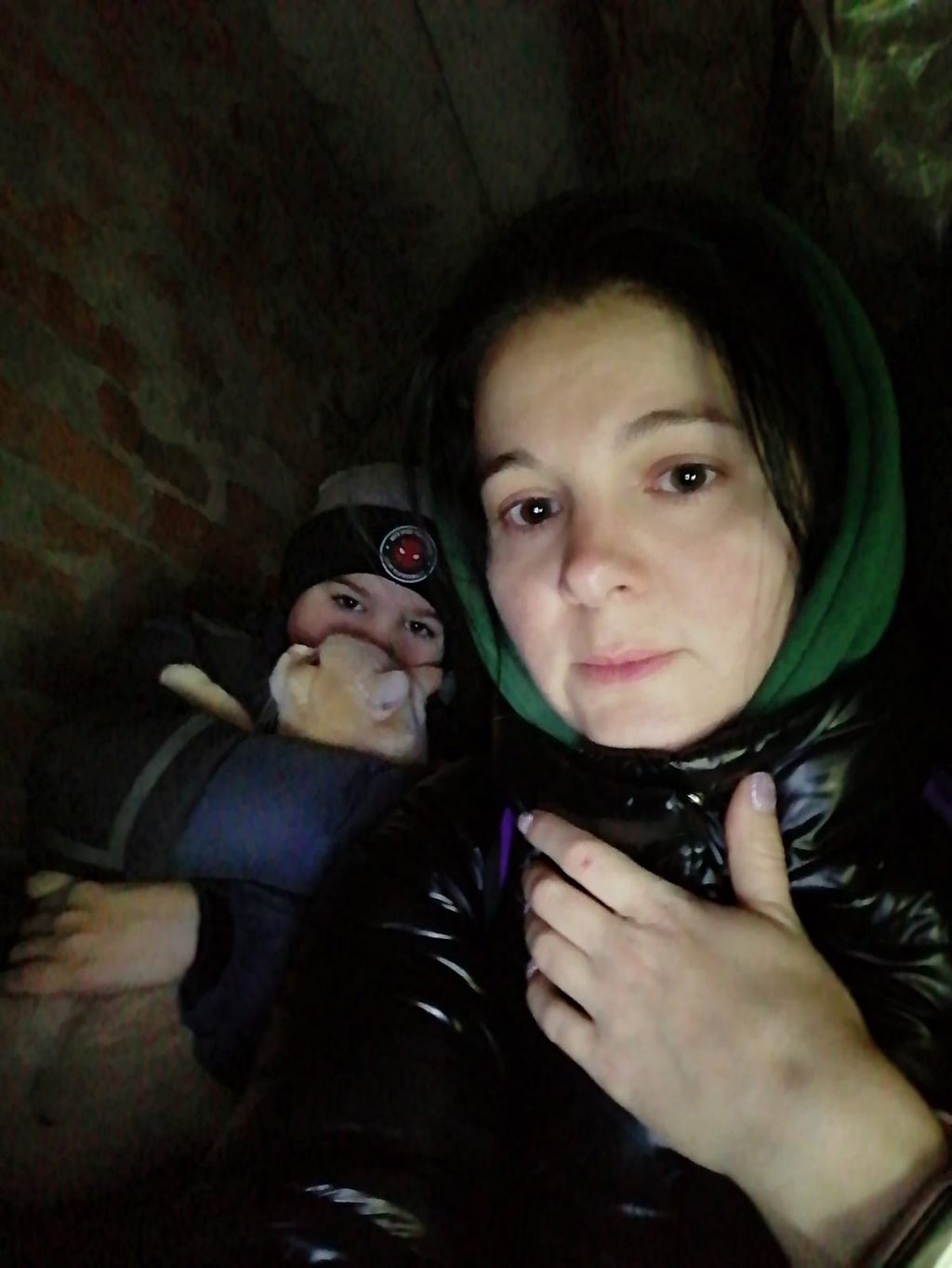
For the first hour of the journey out of Chernihiv, Yulia Zhdanova didn’t cry.
She could hear her mother praying out loud as they drove with her husband and two sons all piled into the old family car (their new car having been destroyed two days earlier by bombs that killed at least 47 of their neighbours).
On the roads, they passed the cars of other families who had also attempted to escape their hometown. The vehicles were burned and riddled with bullet holes.
No one drank or ate anything for fear that a stop to go to the bathroom would make them even more vulnerable to Russian attack.
“I had to be strong. I didn’t have time to be weak and cry,” Ms Zhdanova tells The Independent.
“The first time I cried was when we got out of Chernihiv and saw people in the road.
“Strangers who were waiting in the road to meet cars of people who had got out to take us to their homes and feed us and help us.
“That was the first time I cried since leaving my city.”
Since the start of Vladimir Putin’s war on Ukraine on 24 February, the people of Chernihiv have been relentlessly bombarded by attacks on their homes, schools, hospitals and other residential buildings.
Located 50 miles from the point where the Ukrainian border touches both Belarus and Russia and also located 90 miles north of Kyiv, Chernihiv’s strategic position made it one of the first targets by Russian troops as they attempted to seize Ukraine’s capital.
Now, with the war in its second month, Russia has still failed to take either Kyiv or Chernihiv.
But, while still under Ukrainian control, Chernihiv has been one of the hardest-hit parts of the country - second only to the besieged city of Mariupol.
City under siege
On Tuesday, the Kremlin made a promise to stop attacking both Chernihiv and Kyiv following apparent progress in peace talks with Ukrainian officials in Turkey.
Yet, just hours later, Russian military strikes rained back down on Chernihiv.
Mayor Vladyslav Atroshenko said that Russia had actually “increased the intensity of strikes” on the city, with at least 25 casualties reported on Wednesday.
“The locals live in a real humanitarian crisis for weeks with no electricity, no heating, no water, only in some areas of the city there’s gas. Thousands of buildings are destroyed. Yesterday, our district, Liotka, was shelled especially heavily, where a few people died and dozens were injured,” he told CNN.
At least 400 civilians have been killed in Chernihiv since the start of the invasion as Russian air strikes reduce the city once known for its beautiful historical landmarks to rubble.
In one horrific attack on 16 March, 10 people - including American citizen Jimmy Hill - were shot dead by Russian troops while they waited in line to buy bread from a store.
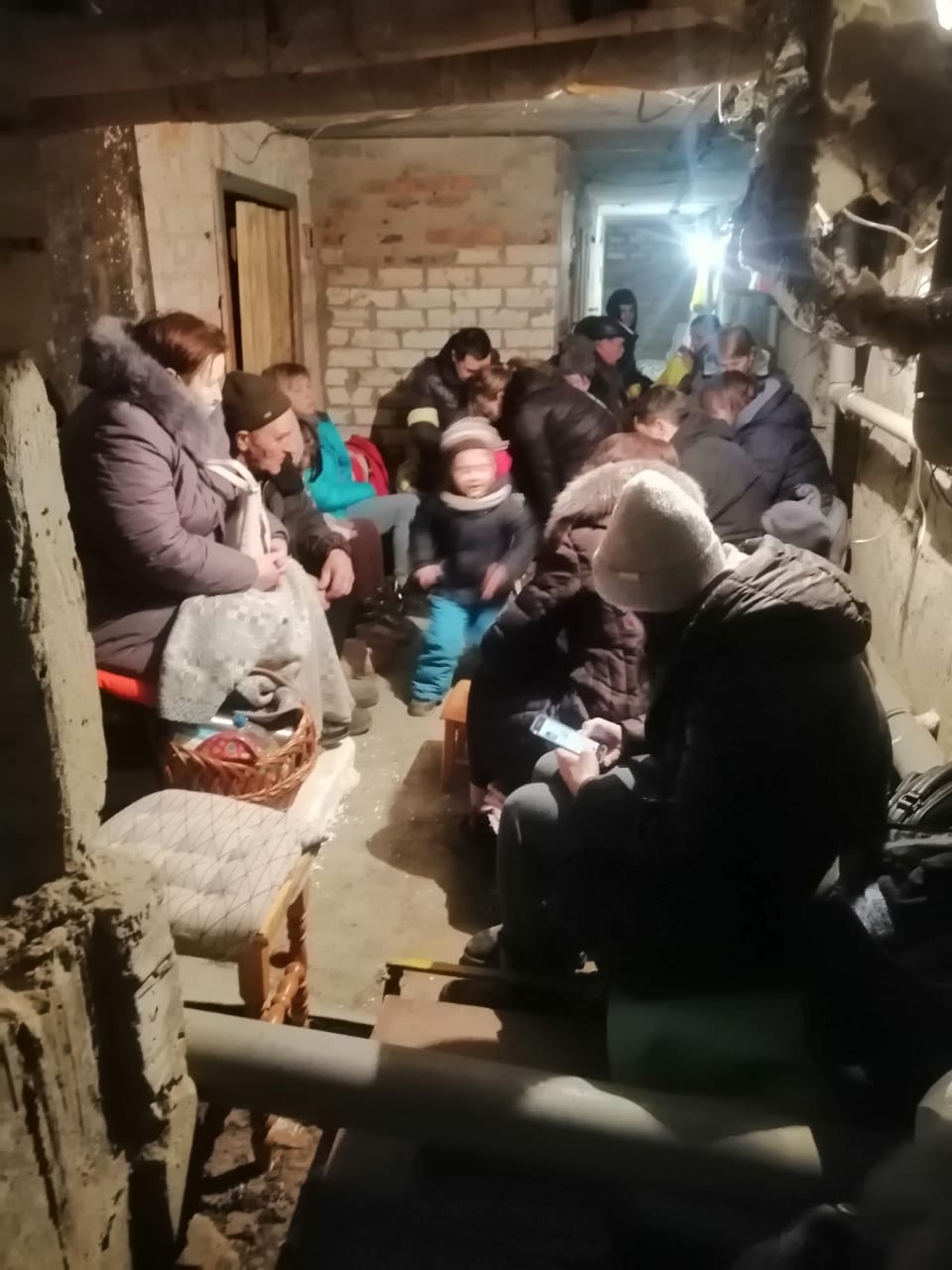
Those who have so far survived the assault are left facing an escalating humanitarian crisis with electricity, running water, gas and heating cut off in many areas.
Supplies of food, medicine and essential goods are also dwindling by the day as, with the city almost entirely surrounded by Russian forces, getting humanitarian aid in to people in need is close to impossible.
Evacuations out of the city are also perilous with families risking their lives to make the journey by car or foot.
Last week, hopes of evacuating were dashed further when Russian forces bombed the only bridge leading out of Chernihiv.
The bridge crossed over the Desna River and was the sole way for the tens of thousands of civilians still in the city to escape in the direction of Kyiv.
It was also the only way for humanitarian aid trucks to bring much-needed supplies to the people inside.
A pedestrian bridge is now the only possible way in and out - a route that is also the target of Russian shelling.
The bombing of the bridge came after Mr Atroshenko urged people to leave and reports surfaced that dozens of buses had been arranged to evacuate civilians from the city.
Now, officials say the city is “cut off” with no way out for around 150,000 of the city’s 285,000 pre-war residents who are estimated to still be trapped inside.
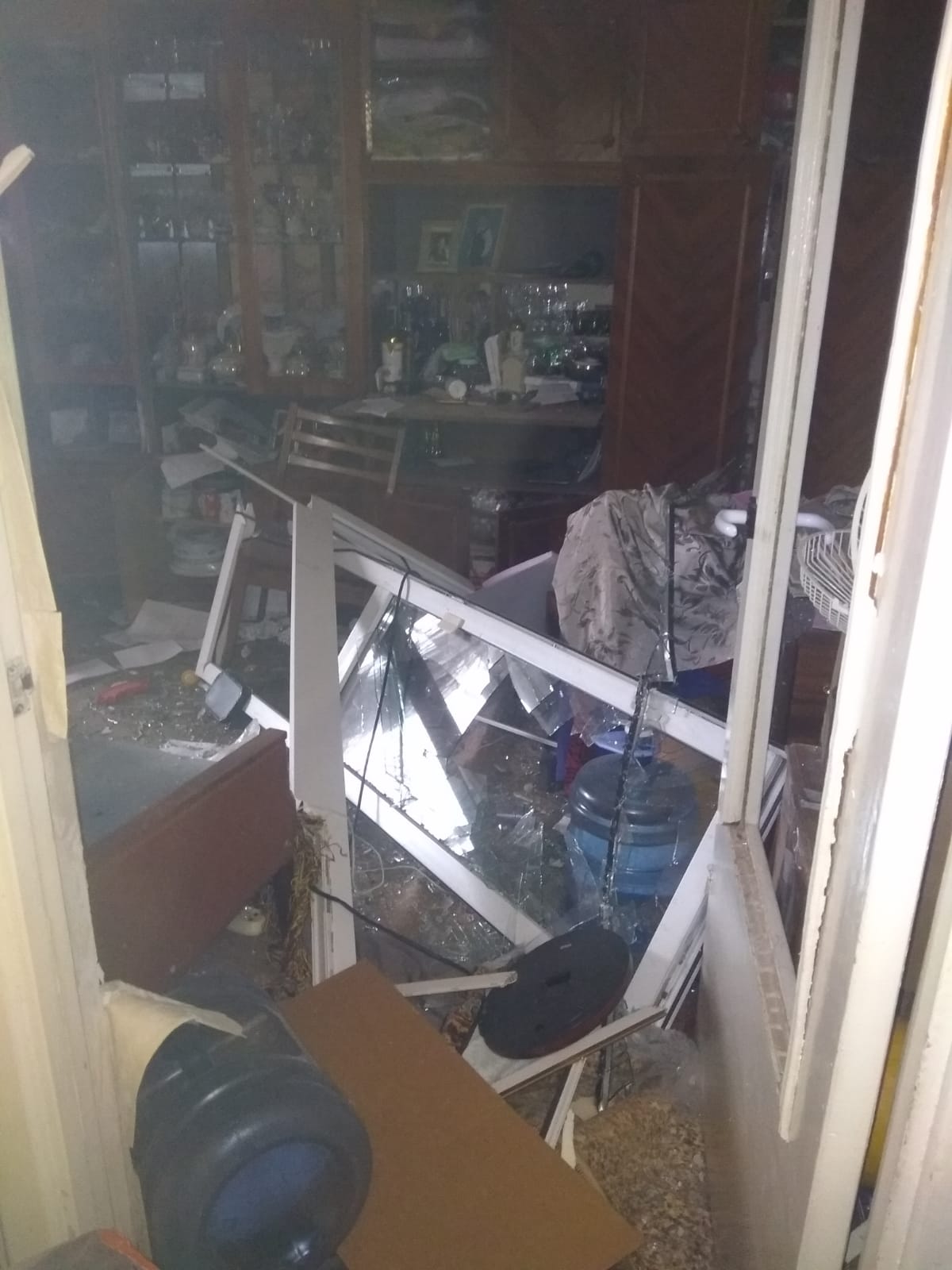
Home destroyed
The bridge was the way that Ms Zhdanova’s family, like many others, had managed to escape.
Speaking to The Independent from a relatively safe town in western Ukraine, the English teacher says that her family initially wanted to stay in their hometown as they believed the war would be over in a matter of days.
Then, on the one-week anniversary of Russia’s invasion, she and her two sons Stefan, 11, and Ilya, 14, narrowly survived a strike on their family home.
It was 3 March and they had spent the last week running between their home above ground and their basement below as air raid sirens rang out both day and night.
They had trained themselves to always be on alert for a possible attack, sleeping in their clothes and boots so they were ready to run at any second.
“We were going from the shelter up into the house and again down to the shelter again. Sometimes we had a relatively safe distance of 20 to 30 minutes between sirens so we could come up and eat and take a breathe,” she says.
That day, her husband was out on a patrol shift and she and her sons had ran up to the house to quickly eat some soup.
They ate the soup cold and with their dirty hands, as there was no time to even gather cutlery let alone heat up the food - and their running water was cut off so they couldn’t wash anyway.
“We were eating like people from the Middle Ages with our hands and it was cold and not tasty but even the children didn’t say anything. They knew we just had to eat very quickly,” she says.
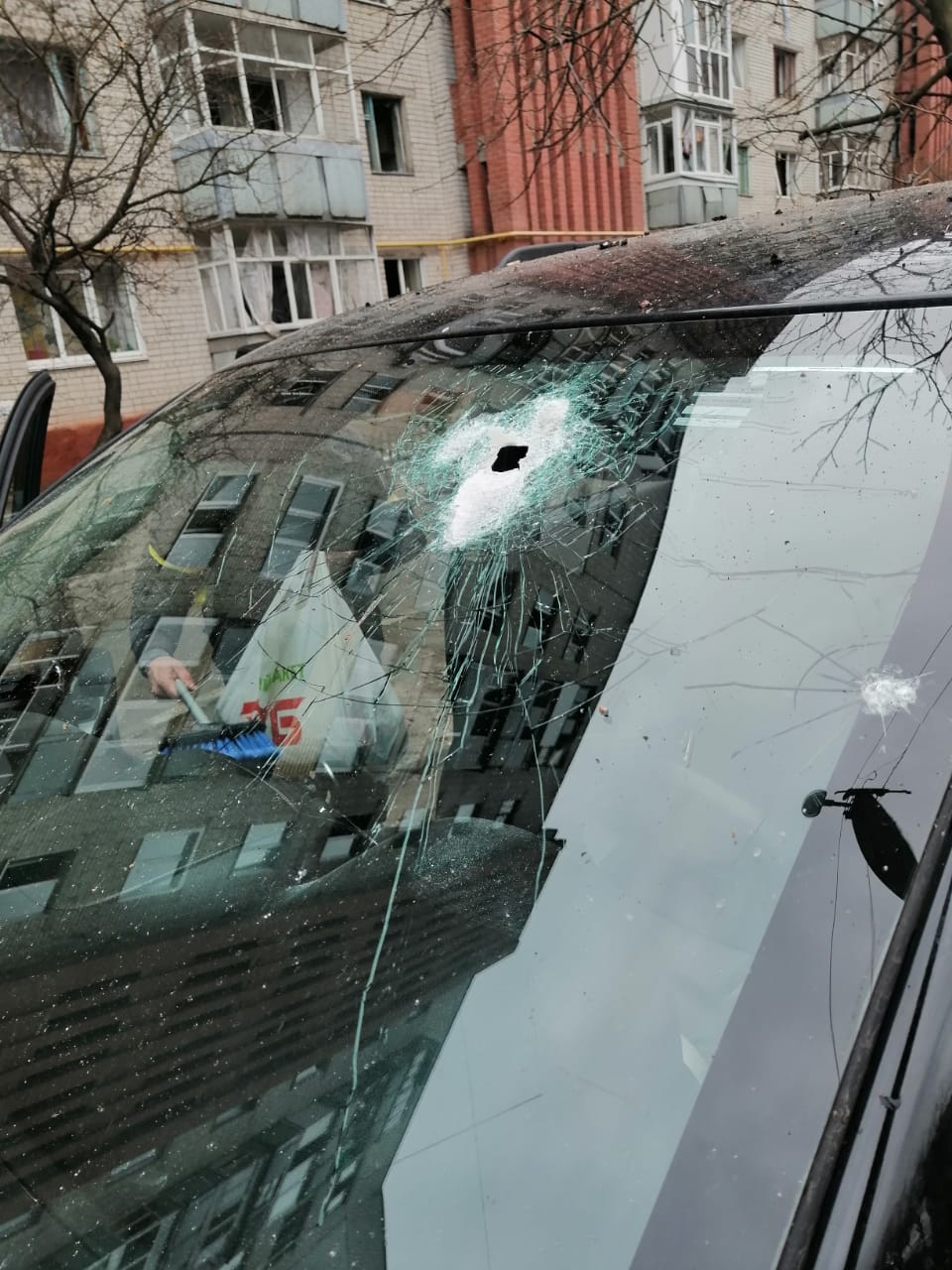
As they shoved down the food, there was another air raid siren.
There was no time to reach the shelter.
Ms Zhdanova ran with her children to a corridor in between two walls as they heard an explosion.
“It was very loud, sounding like a bomb and a shooting at the same time,” she says.
“The glass blew out of the windows and we saw black dust. We fell on the floor and covered our ears with our hands.
“The sound was so loud and the house was shaking. We didn’t know what happened.
“We were alive but didn’t know if it was safe to go outside or if something dangerous like shooting would be outside.
“But we also didn’t know if a bomb had hit the house or if it was on fire or breaking and not safe to stay in.”
When she heard a man’s voice shouting “everybody in the house get out quickly” she says they grabbed their cat and emergency bag and ran from the house.
It was then that Ms Zhdanova says she saw that the residential apartment building next to their home had been struck by a missile and was up in flames. Her parents-in-law lived in the building.
In the streets lay the bodies of people who had been waiting in line for food and medicines at nearby stores.
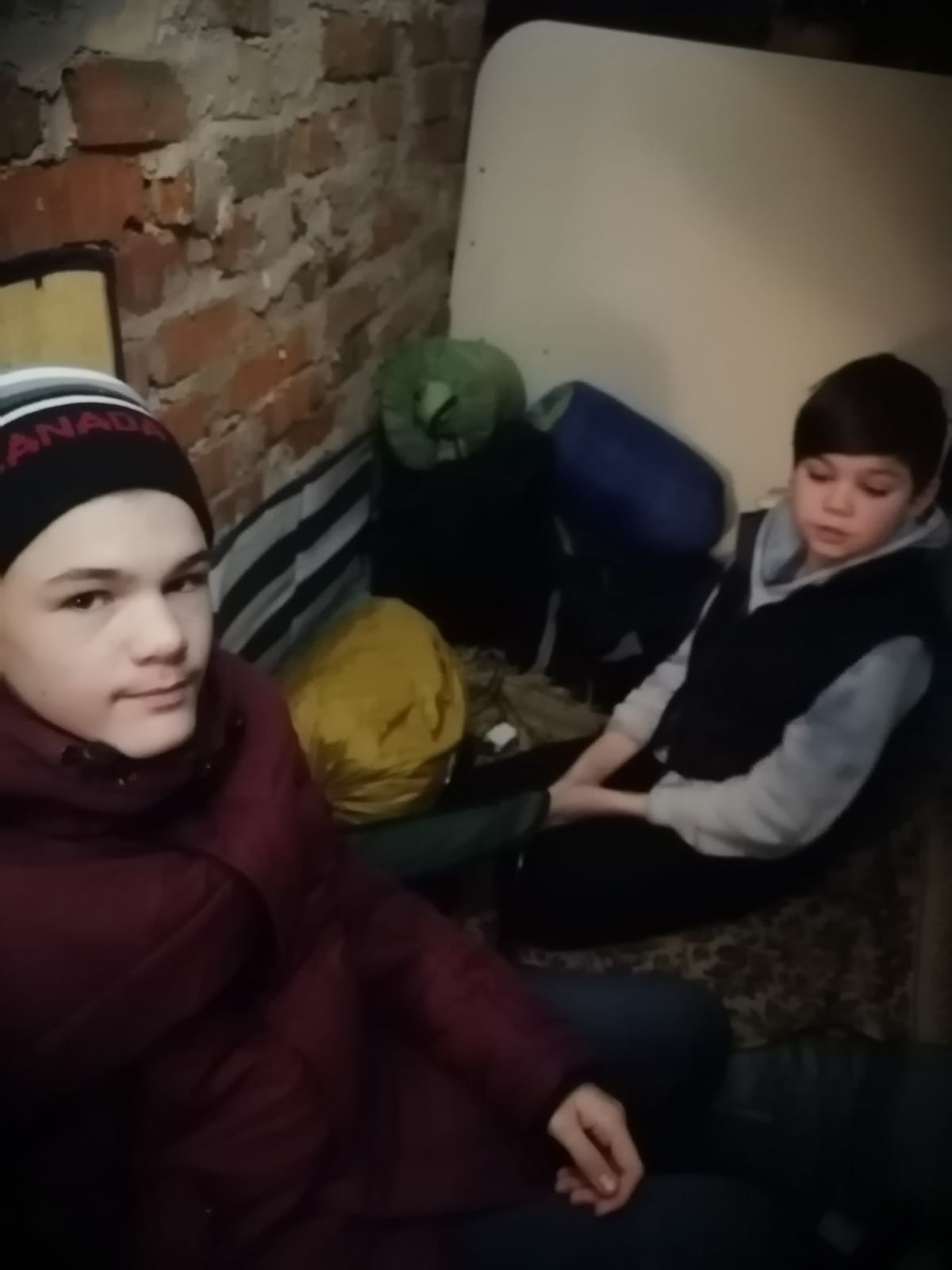
Ms Zhdanova’s husband ran to the square to find out if his family was alive.
“He had to jump over the bodies of old people who had been stood in a queue at the chemist’s to get to his parent’s house,” she says.
“Bodies were incomplete, there were legs torn off, blood everywhere.”
Ms Zhdanova says neither her mother-in-law or father-in-law were inside at the time but her brother-in-law was and he suffered wounds to his head and leg from the shrapnel.
War crime
At least 47 civilians - 38 men and nine women - were killed in the strike, with bodies being pulled from the rubble for several days.
It is one of the deadliest single attacks on civilians since the start of the war and has been labeled as a suspected war crime.
An investigation by human rights group Amnesty International found that people were likely waiting in line to buy food when Russian forces fired at least eight “dumb bombs” at the small public square at around midday.
No legitimate military targets were at or near the scene of the attack, the group said.
The mayor said the plane dropping the bombs was “flying low, it was the middle of the day, and very visible that it was a residential area”.
Amnesty International’s crisis response director Joanne Mariner called it “a merciless, indiscriminate attack on people as they went about their daily business in their homes, streets and shops” and called on the Prosecutor of the International Criminal Court to investigate the strike as a war crime.
Ms Zhdanova’s family were fortunate to survive that time.
But the close call left her and her husband with no choice but to weigh up the possibility of evacuating.
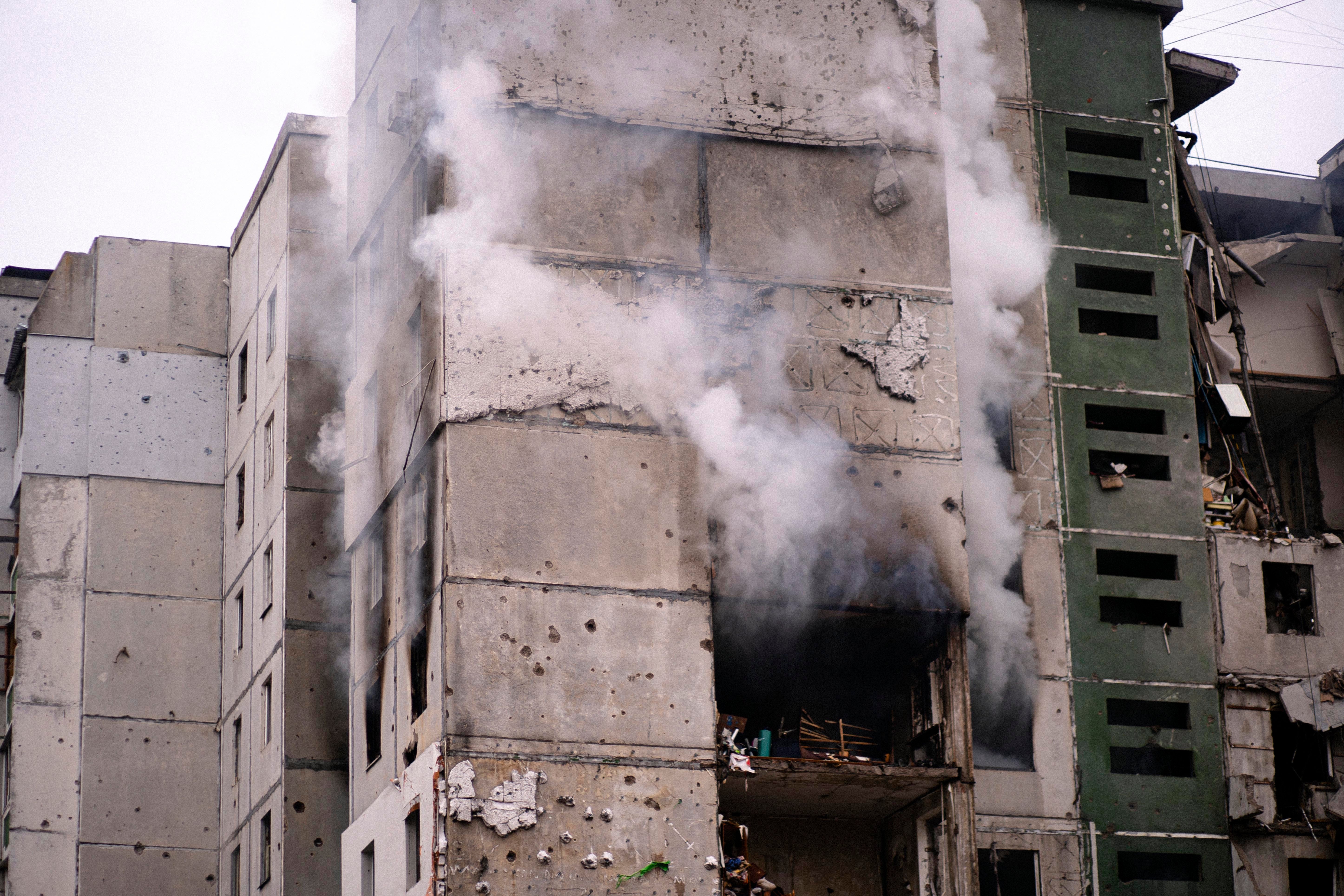
An impossible decision
It’s an impossible decision many families have had to make: stay and risk being killed by Russian attacks or try to leave and risk being killed during the escape.
“I just can’t even formulate it with words to explain how horrible and awful a situation it was,” says Ms Zhdanova.
“The roads out of the city were mined and our mayor had said that it was difficult to go out so if you want to risk it, you can do it but be assured it is not safe and no one can guarantee you anything’.
“But we also had good examples of people who had managed to escape.
“So we decided to drive to a more safe place as it was not possible to stay in our home any longer and we had no windows, electricity, no water.”
She added: “We knew it was risky but we had nothing left as it is so dangerous in Chernihiv.”
Their decision was cemented when, one day after their home was bombed, volunteers from the local patrol told them that they had seen flames in a house nearby - believed to be a signal from Russians on the ground to target a location.
“We survived the other night and there we were waiting for when another rocket could fall to the ground and we could be dead that time,” she said.
“We just couldn’t breathe. We were balls of nerves all the time, we couldn’t do it anymore.”
Journeying west
Two days after their home was destroyed, they began the journey west to stay with relatives.
It’s a journey that, before the war, would take them around one night.
But it was four days before they reached their destination after passing through several checkpoints and changing routes several times to avoid encountering Russian troops.
Their escape was dangerous from the get-go, which began with her husband navigating around Russian fire to retrieve their car from a garage.
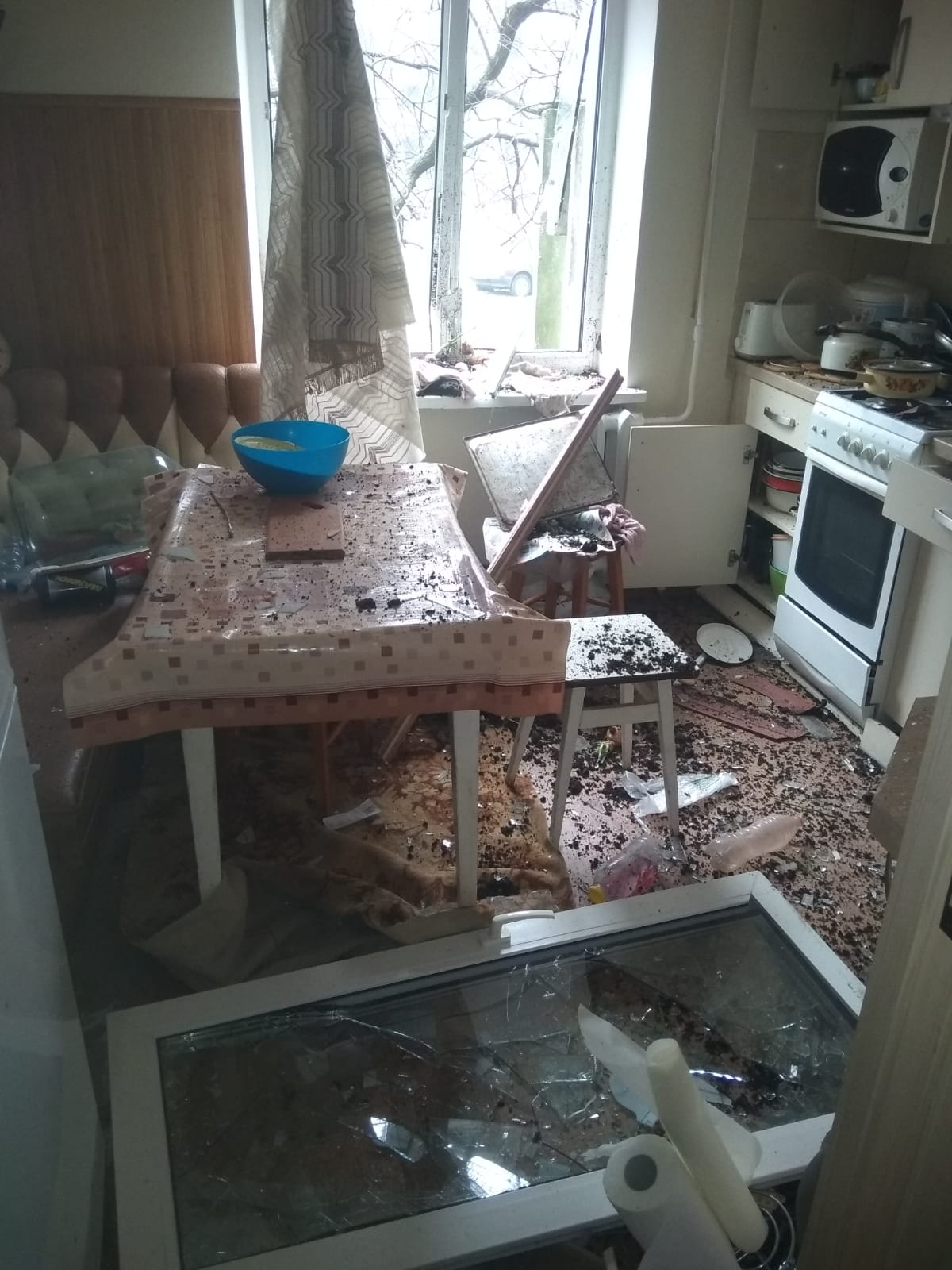
“It was a very difficult journey,” she says.
“There were special checkpoints where soldiers would have us sit for some time and some cars turned back because it was risky.
“We heard explosions overhead. We saw some cars burned and some left by the road after people were shot. People advised us not to get out of the car or we could get shot.
Ms Zhdanova says she never believed her family would make it to safety.
“I didn’t believe that it could be possible that we could be saved so I didn’t take anything with us,” she says.
“I didn’t go back to the flat to collect anything and everything we had was in the bag we took from the house during the bombing.”
She says that her family and many others made it out alive by helping each other - passing information from one car to the next through Telegram chats.
“People would give information like don’t go to that village as there are Russians there or that they just heard shooting in one place so don’t go there so we would all keep changing our routes,” she says.
“I would then pass it onto cars behind so we were all in communication helping each other all the time.
“But we would communicate in riddles in case Russians could see them.”
Ukrainians unite
It’s a sense of unity that Ms Zhdanova says has come out of the darkness of the war.
“Ukrainians are now so united, with people helping strangers out and giving people shelter,” she says.
When the war is over, Ms Zhdanova says she wants to repay the couple who met her family on the road out of Chernihiv and welcomed them into their home, moving her to tears.
“A couple took us to their house and gave us mattresses on the floor and food and something warm,” she says.
“And the woman asked us what time we were going the next day and when we said 8am she said she would get up at 7am then so she could cook for us before we left.
“When we left I asked what I owed her and she said ‘nothing - you need the money more than us.’”
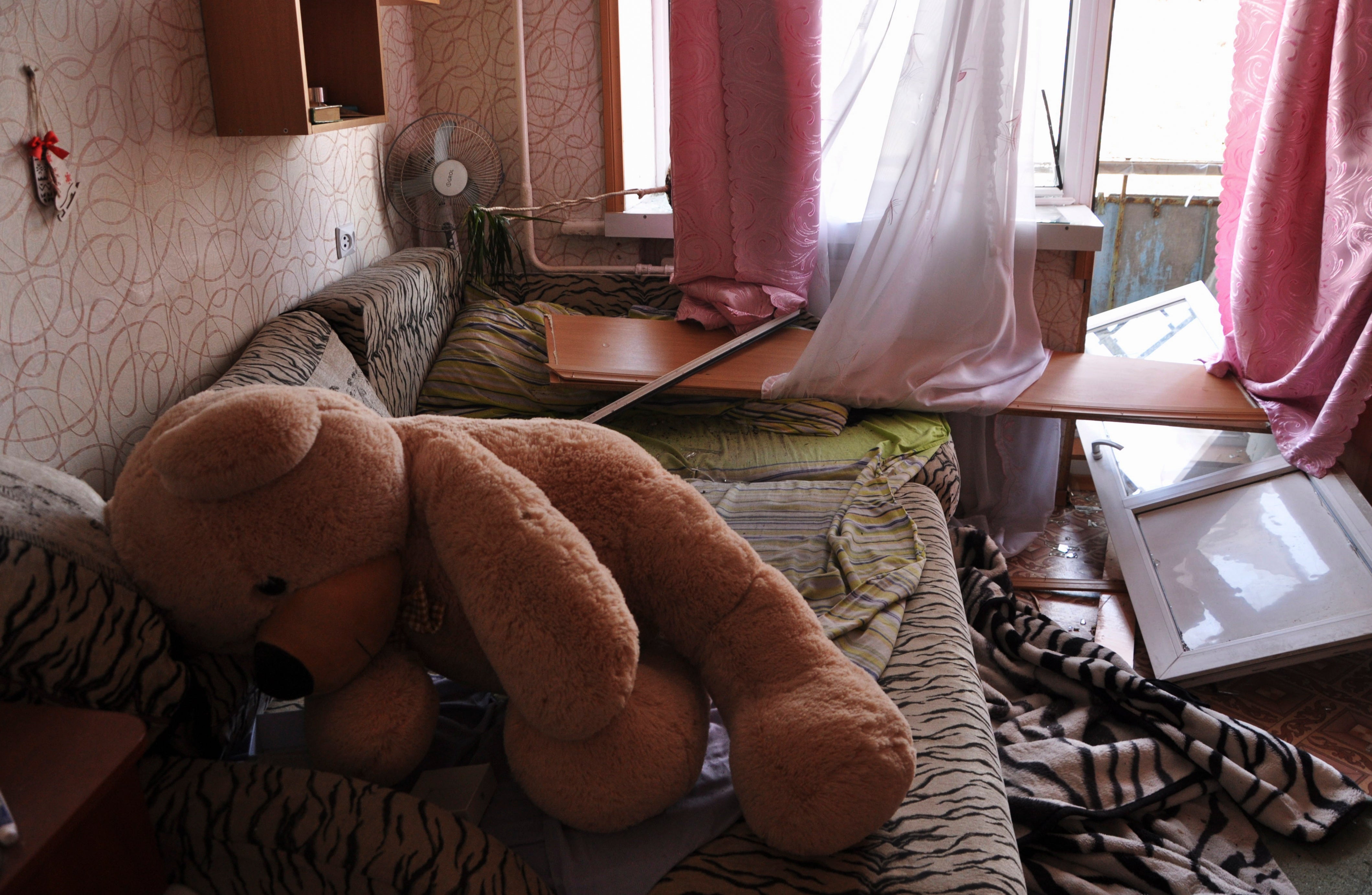
The mother-of-two says she has also been overwhelmed by the help and support from her fellow Ukrainians since they arrived as refugees in western Ukraine, saying that “we don’t even need the amount of clothes and food that they are giving us”.
Now in a much safer area, Ms Zhdanova says her sons can experience some sense of normal life again.
“In comparison these are two different worlds as in Chernihiv it is a war, it is very dangerous and here we can breathe more easily and we have electricity, gas and internet connection,” she says.
There are still air raid sirens sometimes but Stefan and Ilya - who turned 14 on 16 March days after fleeing his home - can go to the shops and play in the local park.
While she is happy her sons are safer, there’s no doubt that their experience has taken its toll.
“They know everything that was going on as the war was all around them and all the conversations we had in the shelter was about the war,” she says.
“When the explosion happened, they were so scared and were crying on the floor and making non-humans sounds.
“Now, when they hear loud sounds like the bang of a gate and a car door closing they shake, thinking it could be a bomb.”
The people who stayed behind
For friends and neighbours who have also escaped, they continue to fear for the people still in Chernihiv.
Ms Zhdanova says one of her friends evacuated to Poland with her son but that her husband stayed behind.
With electricity now cut off, he is only able to charge his phone to about 10 percent battery power at times when there is a generator available as people make sure to share resources so that everyone can call their relatives.
Three or four days will go by without him being able to contact his family and, in that time, her friend “suffers so much”.
“People leave but their hearts are still in their native city. Lots of families have been broken, children are without their fathers,” says Ms Zhdanova.
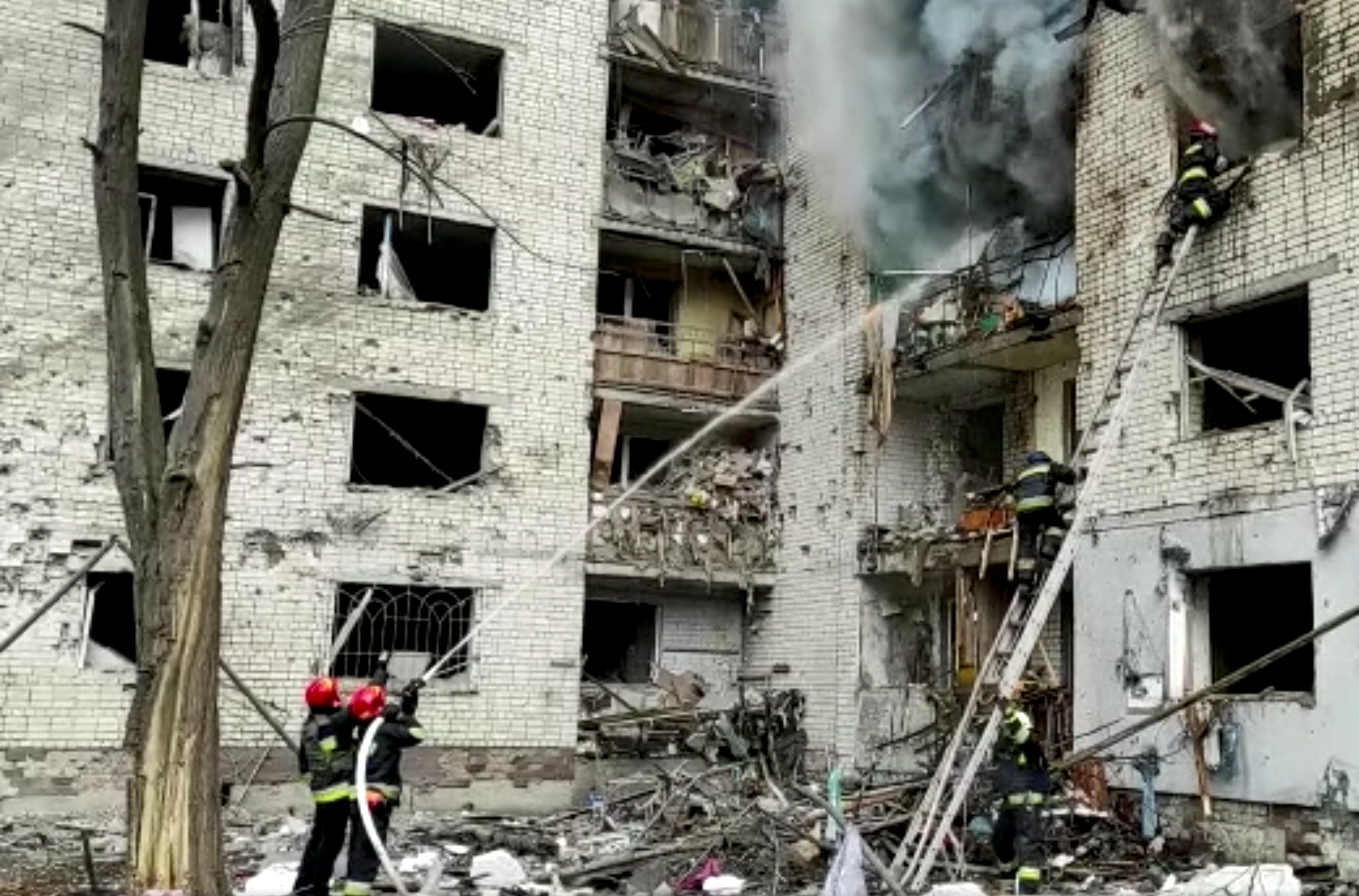
The loss of power is also making it increasingly difficult for people to tell the world about the horrors happening in their city.
“There’s less and less information coming from Chernihiv as Russia is trying to cut people off and spread fake information about what is happening. There is so much propaganda,” she says.
Ms Zhdanova says her husband has relatives in Russia who don’t believe what is happening in Chernihiv - even after they have shown them photos and told them their personal experience there.
“They are blind. They are like zombies after they have had too much propaganda for so many years,” she says.
This is why Ms Zhdanova wants to help tell the story of what is happening in her home city as the situation becomes increasingly dangerous as the weeks go on.
In the rare times she is able to speak to her friends back in Chernihiv, she says they recount “horrible things”.
“The situation is now so difficult and it’s getting worse and worse every day,” she says.
“I don’t know how people will survive.
“It is so dangerous that many children don’t go outside at all. They never leave the basements. They don’t see the sun at all.
“And the people who go to the shops are heroes as they have to be brave and stay for three or four hours and ignore the sirens going on over them which means they could be bombed at any moment.”
With the bridge into the city now destroyed and supplies of food and medicine even more scarce, she says people are sharing the little that they have left with each other.
Some are traveling to chemists to try to find medical supplies for elderly people in need.
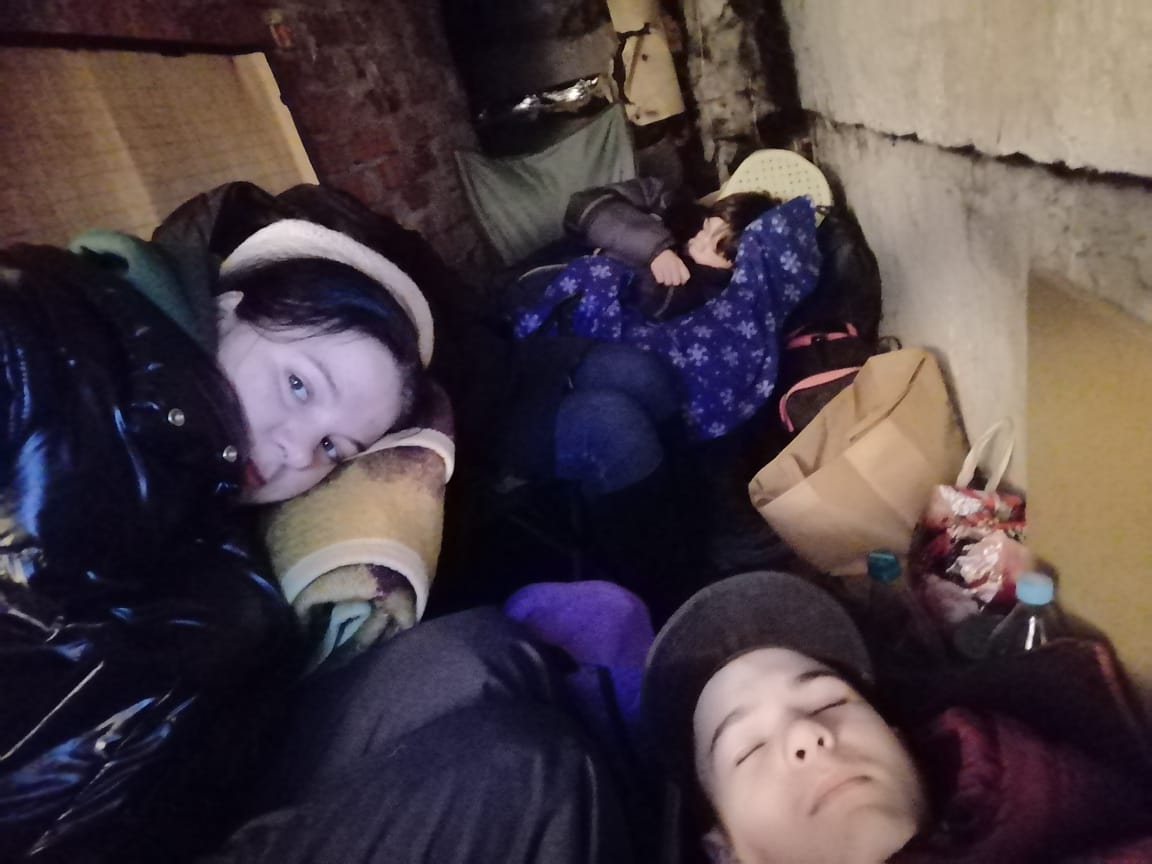
Others collect water from the river and boil it over fires outside so that people have water to drink, cook and wash as water and power is shut off.
Some make big soups on the fires - cobbling together food from many different people - and share it around.
“People are helping each other as much as they can but they don’t have much. They don’t have plans for the future they are just focusing on having something for that day,” she says.
“I can’t believe in 2022 it’s possible that people are living like they are in the Middle Ages.”
Ms Zhdanova says the desperate situation facing her home city of Chernihiv is in has shown what really matters in life.
“Now you can see what’s important in the world - it shows that money doesn’t mean anything as no matter how rich you are you just need the simple things,” she says.
“People need food and to be together with their loved ones and to help each other.”
The Independent has a proud history of campaigning for the rights of the most vulnerable, and we first ran our Refugees Welcome campaign during the war in Syria in 2015. Now, as we renew our campaign and launch this petition in the wake of the unfolding Ukrainian crisis, we are calling on the government to go further and faster to ensure help is delivered.
To find out more about our Refugees Welcome campaign, click here. To sign the petition click here. If you would like to donate then please click here for our GoFundMe page.







